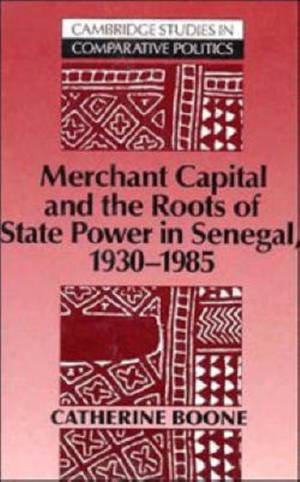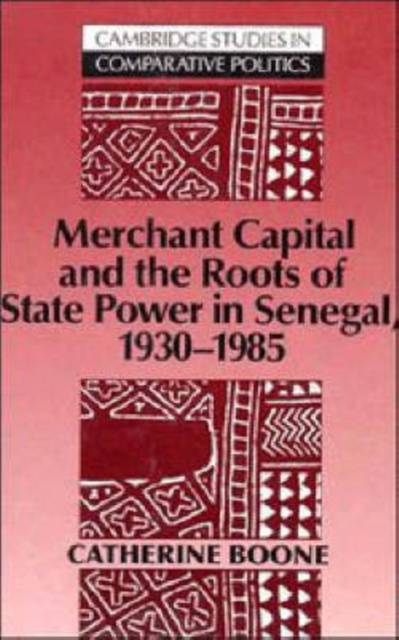
Je cadeautjes zeker op tijd in huis hebben voor de feestdagen? Kom langs in onze winkels en vind het perfecte geschenk!
- Afhalen na 1 uur in een winkel met voorraad
- Gratis thuislevering in België vanaf € 30
- Ruim aanbod met 7 miljoen producten
Je cadeautjes zeker op tijd in huis hebben voor de feestdagen? Kom langs in onze winkels en vind het perfecte geschenk!
- Afhalen na 1 uur in een winkel met voorraad
- Gratis thuislevering in België vanaf € 30
- Ruim aanbod met 7 miljoen producten
Zoeken
€ 281,45
+ 562 punten
Uitvoering
Omschrijving
In most post-colonial regimes in sub-Saharan Africa, state power has been used to structure economic production in ways that have tended to produce economic stagnation rather than growth. In this book, Catherine Boone examines the ways in which the exercise of state power has inhibited economic growth, focusing on the case of Senegal. She traces changes in the political economy of Senegal from the heyday of colonial merchant capital in the 1930s to the decay of the neo-colonial merchant capital in the 1980s and reveals that old trading monopolies, commercial hierarchies and patterns of wealth accumulation were preserved at the cost of reforms that would have stimulated economic growth. Boone uses this case to develop an argument against analyses of political-economic development that identify state institutions and ideologies as independent forces driving the process of economic transformation. State power, she argues, is rooted in the material and social bases of ruling alliances.
Specificaties
Betrokkenen
- Auteur(s):
- Uitgeverij:
Inhoud
- Aantal bladzijden:
- 318
- Taal:
- Engels
- Reeks:
Eigenschappen
- Productcode (EAN):
- 9780521410786
- Verschijningsdatum:
- 30/10/1992
- Uitvoering:
- Hardcover
- Formaat:
- Genaaid
- Afmetingen:
- 152 mm x 229 mm
- Gewicht:
- 635 g

Alleen bij Standaard Boekhandel
+ 562 punten op je klantenkaart van Standaard Boekhandel
Beoordelingen
We publiceren alleen reviews die voldoen aan de voorwaarden voor reviews. Bekijk onze voorwaarden voor reviews.









